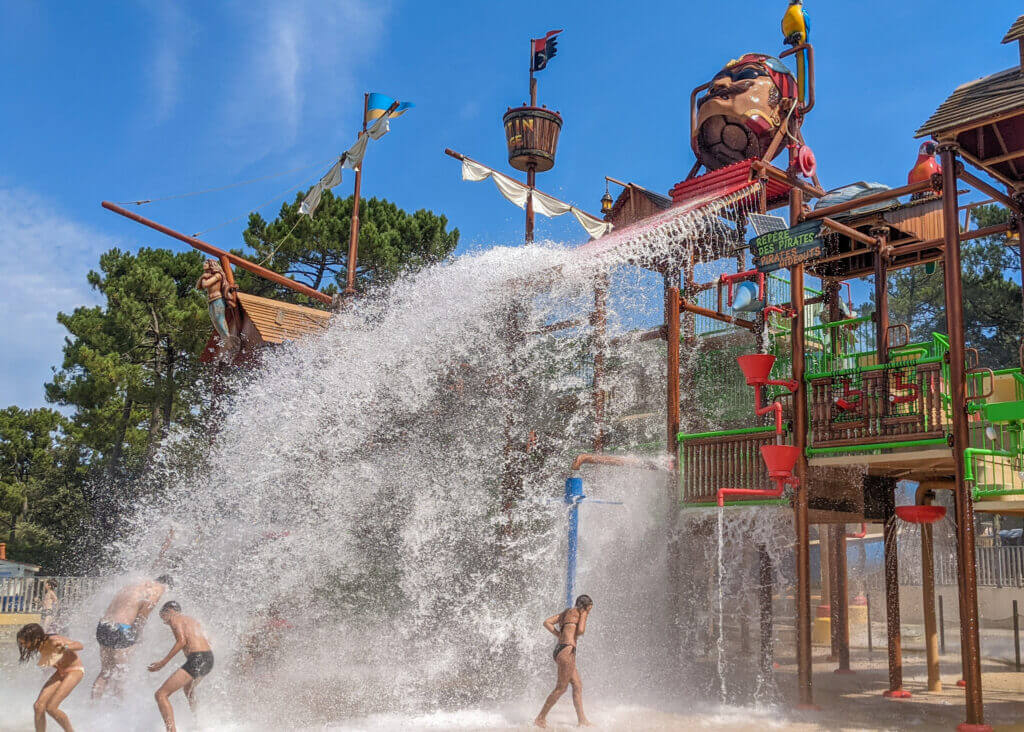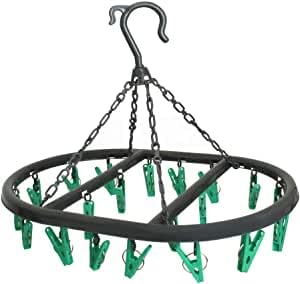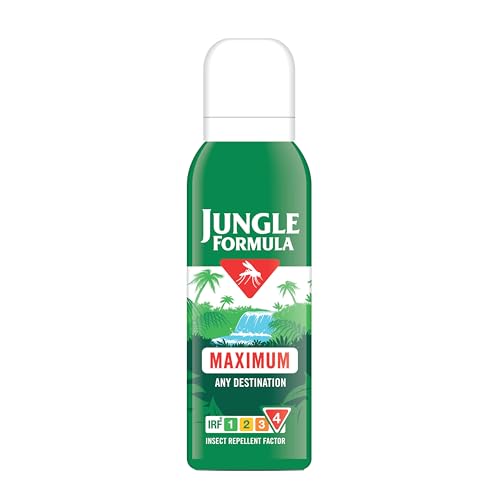Whether you’re a first-timer or regular campers, there’s something for everyone here with these top tips for camping in France.
The French have camping down to a fine art. Whether you’re looking for a family campsite with a swimming pool, kids club and entertainment, or a quiet campsite on the grounds of a chateaux to sip wine bought from a local vineyard that day, camping in France really offers something for everyone. And let’s not forget the plentiful free campsites conveniently dotted around the country, known as ‘aires’, often situated next to a lake or quaint village.
We have lost count of the number of times we’ve been camping in France. It’s something I grew up doing with my parents every year, and it’s something I continue to do now with my own kids, ever since they were born. At least once or twice a year we pack up our Mazda Bongo camper, book the Dover to Calais ferry crossing, and road-trip through France staying at various campsites along the way.
We’ve learned a few things along the way, so here are some top tips for camping in France to make the most of your visit.
Disclaimer: This post contains affiliate links. If you click to purchase, it is at no additional cost to you, and I receive a small commission.
1. Don’t rush
France is a huge country. It’s 2.3 times larger than the UK. Admittedly the better road system in France means that getting from A to B is quicker than the UK, but nonetheless, Calais to Biarritz is 1066km, which is over 10 hours of continuous driving.
There is also so much diversity in France; from the jagged peaks of the Alps, the windswept surf-beaches of the Atlantic coast and the medieval hilltop villages of the Dordogne. It would take months (a year?) to cover it all.
You will get more out of exploring one region of France for longer, rather than bouncing around every 2-3 days. We often spend a week or longer at a time just at one campsite.
Slip into French time and savour the experience like an aged-Bordeaux. Trust me, if this is your first camping trip to France, it won’t be your last.
Also, check out our tips for driving through France.
2. Keep it simple
Some people have some seriously impressive set ups at French campsites and seemingly recreate a camping version of their home lounge and kitchen, of course adorned with bunting and fairy lights all under a huge canopy.
Whilst it’s easy to get carried away believing you need to buy all the things, this really isn’t the case. And for your first France camping trip I would urge you to keep it simple. Everyone camps differently and it’s important to give it time to consider what works well for you and what your preferred style of camping is.
Many French campsites are exceptionally well equipped with bakeries and restaurants onsite (meaning you don’t actually have to cook if you don’t want to) and large wash blocks for showering and doing laundry. You can even book into campsites where your pitch has a personal washblock, such as Les Sablons on the Mediterranean coast or Sandaya Camping Le Col Vert on the Atlantic coast.
So if you really wanted to strip down to the essentials, all you really need is somewhere to sleep, basic cutlery, and something to sit on (although some campsites also provide a picnic bench).
Although if you really want to, you don’t even need to pack this! There are camping sites across France with pre-erected tents with everything you need (except bedding). These can be found with Eurocamp, Canvas Holiday and Sandaya. Especially if you’re a family, it may be worth testing out this style of camping first.
Check out our ultimate camping packing list if you are looking for ideas on what to pack in your campervan.
3. Know your style of camping
Whilst we are backpackers at heart who love travelling to off-the-beaten path destinations (Cambodia, Morocco and India are favourite destinations), when it comes to family camping in France, we actually prefer the larger sites with waterslides, restaurants and kids clubs that are perhaps more akin to package holidays.
Why? Well the boys absolutely love them; as goes the classic parenting saying ‘if the kids are happy, the parents are happy’.

These big campsites are a place for them to make friends, they spend hours in the pool, and the kids club means that us parents can get some work done uninterrupted, which allows for longer-term travel (we’re remote working bloggers).
But these campsites, especially in the summer, get very busy and I totally understand that isn’t everyone’s cup of tea.
Thankfully France offers a superb range of campsites:
- if you like the bigger campsites, look at Eurocamp, Canvas Holiday and Sandaya
- if you like smaller campsites focused on nature, look at Les Castels
- if you like free or very cheap campsites and limited facilities, then check out the aires (officially known as ‘aire de camping car’). These are easiest to find on Google maps and work on a first-come-first-served basis. So if you are travelling in peak season, try and aim to get to one before 2pm. Although caravans and tents are generally not allowed and you need to be fully self-sufficient.
4. Book in advance for the summer holidays
When something is a good thing, it’s going to be busy. Fact.
French campsites in the summer holidays are fantastic for families, and understandably get booked up.
The larger sites can be booked up months in advance for August. If you’re flexible, you’ll always find somewhere. But if you have your heart set on one of the best family campsites in France, then we urge you to book ahead (by May ideally for August). Although I’ve heard of some French campsites being booked up for August by February!
So just to reiterate, you will find somewhere to camp in the summer holidays, but for peace of mine, book ahead. The aires, for instance, cannot be pre-booked. But we have often found a space at a brilliant campsite just a few days before. Also, it’s worth emailing the campsite ahead if they are booked up as there are always cancellations.
5. Eat croissants every morning
If there’s not a bakery on site, there will be one very nearby.
At every campsite in France we’ve been to, we’ve always been able to get fresh breads every morning. At the smaller campsites it’s a case of ordering your breads from reception the night before, and at larger campsites its a case of just walking to the bakery on site each morning.

Always check at reception when you check in to your campsite on the situation with ordering breads.
It’s also worth purchasing a baguette or three for lunch when you go for your morning croissants, as lunch will be bread and cheese, of course.
6. Take the bikes
This is perhaps our top tip for camping in France.
We absolutely adore France for the cycle network. There are so many traffic-free cycle paths, often leading from the campsite entrance, that will lead you to a beach or chateaux.

This is why we often spend up to a week or more at one campsite at a time. We set our Bongo campervan up and then explore the surrounding area on our bikes, which means we never need to bother with the faff of packing away for a day of adventuring.
Our favourite campsites in France with access to good cycle tracks include (these are all featured in our list of best campsites in France):
- Camping la Rencontre du Soleil, The Alps
- Le Mouline de Paulhiac Campsite, Dordogne
- Domaine d’Oléron, Ile d’Oléron
- Les Sablons, Languedoc-Roussillon
- Sandaya Camping Le Col Vert
Whilst you can hire bikes at most campsites, it’s always easier to take your own. Just make sure you have a good bike rack (we use this Mazda Bongo bike rack).
7. Don’t expect an early night
Especially in the summer months, campsites in France can get pretty rowdy until midnight. Rather than tossing and turning in your bed tutting away, enjoy the vibe of the later evenings and shift your body clock. That, or pack earplugs.
It’s not unknown for kids to be still playing in the playground and cycling around the campsite after 10pm, and sometimes at campsites closer to Spain, the onsite entertainment at larger sites doesn’t start until 10pm.
This isn’t just for the school summer holidays, we’ve also found the campsites in the winter months in France can also get rather lively in the evenings, and often it’s the retired clientele who are the ones partying.
There are, of course, quieter campsites in France. Although a small campsite, doesn’t always mean a quiet campsite. It’s often just a case of who is camping there at the time. But generally after 11pm or midnight, silence is expected on French campsites.
8. Bring your own WIFI
Many campsites in France do offer WIFI, but it’s rarely free and often rather slow if you’re doing anything more than emails. So it’s best to have you’re own WIFI.
If you’re coming from the UK, many mobile providers offer EU data, but generally with a cap, which isn’t ideal if you’re travelling for longer than a couple of weeks.
We use a portable WIFI device (such as this one) with a SMARTY sim inserted, and purchase EU data as and when we need it (after the EU data on our UK sim has expired, or to make it last longer).
- Lightning generation 4G LTE 4G MiFi- Supports 4G LTE network, compatible with 3G/2G network
- The Faster Connections Wifi Box- Reaches up to 150Mbps download speed and 50Mbps upload one, to…
- High-Speed Hotspot Mobile Wi-Fi – Share 2.4GHz Wi-Fi at speed of 300Mbps with up to 10 Wi-Fi devices
- Long Lasting Battery – 2000mAh battery for up to 8 hours of working
- Plug and Play – Just insert a SIM card and power on to create a stable Wi-Fi hotspot to share on the…
9. Speak French where you can
It’s nice to make an effort.
Even if your French is extremely basic, saying bonjour, merci, s’il vous plaît will more often than not be returned with a smile.
English is very widely spoken at most campsites, so you will get by if you don’t speak French. But and bars and restaurants away from tourist hotspots, Google Translate is your friend. Or even better, take a photo of the menu and use the translate option that many phones now have.
10. Wash clothes along the way
It’s very easy to find a washing machine in France. If there’s not one at the campsite, then head to one of the large supermarkets as they often have a laundrette (the staff at reception will be able to point you in the right direction).
This means that for extended camping trips to France, you don’t need to pack piles and piles of clothes. Take enough for 7-10 days and then wash them.
This camping washing line is very handy and compact, and this hanging drier is handy for underwear.
- The size of oval socks dryer hanging is perfect to hang on the shower, balcony etc.
- The sock oval sock dryer rack with pegs are easy to grip great for indoor and outdoor drying, easy…
- Perfect for closets, apartments, shower curtain rod, laundry room, outside clothesline etc.
- If you have any questions, please don’t hesitate to contact us. We will help you solve any issue.
- Safety & Lightweight – The bungeee cord will grab the clothes strongly without pins. No More marks…
- Triple cords – Much strong than two cords on the market . Triple braided design grip clothes without…
- Indoor Usage or Outdoor Usage – While at home or at hotel , you can install it Anywhere. While…
- No need to install tools – Dry clothes anywhere without using pegs. wrap the loops on the tree…
- Ideal for the frequent travelling or camping.
11. Keep an eye on the weather
The general rule of thumb with the weather in France is that the further south you go, the more sunshine.
However, with weather patterns all over the world becoming increasingly unpredictable due to climate change, you’ve just got to be prepared for all eventualities.
Have a rain jacket and warm layers handy for the colder days, even in the summer months. We were in the south of France in August 2023 in our campervan and one day it was 40°C and too hot to sleep, the next it dropped to 20°C and we were wearing jumpers in the evening.
12. Try and avoid checking in on a Saturday in the summer
Saturdays are busy change-over days in France.
The last thing you want to do after a long drive to a campsite is stand in a reception queue for almost an hour waiting to check in (trust us, we’ve been there more than once).
Unfortunately some of the larger French campsites do insist on a Saturday to Saturday check in. If it’s unavoidable, plan to check in as early or as late as possible. So our top tip for camping in France here is to try and avoid the peak check-in time of 2pm-6pm on a Saturday.
13. Don’t worry about fashion
France is synonymous with high end fashion, and Instagram may lead you to believe that everyone is cycling around French campsites in flowing dresses, floppy hats and baguettes in their basket. This couldn’t be further from the truth.
The majority of people at campsites in France are living in shorts and T-shirts and their swimwear in the summer months. In the cooler months, it’s jeans and jumpers.
Similarly, don’t fall into the trap of thinking you will be wearing a different outfit every day. We all have our favourite items of clothing and around the campsite you will end up wearing the same thing day in day out.
If you love clothes and want to have all the options at hand, then go for it. But if, like us, you light to pack light for travel, then don’t feel the need to make your camping trip into a fashion show.
14. Keep the insects at bay
In the summer months, mosquitoes can be a bit of a nuisance. They’re not everywhere, but with outdoor living, it’s worth spraying up each evening to avoid getting bitten.
We use Jungle Formula and also like to burn a citronella and lemongrass waxmelt from Waxpop in the burner each evening (the waxmelt really does work wonders).
Wasps can also sometimes be a nuisance, and we’ve found out that burning coffee deters them!
- Highest strength DEET repellent from Jungle Formula Insect Repellent – From the UKs No.1 insect…
- Up To 8.5 Hours Protection Against Mosquito Variants – Up to 8hrs bite protection against the common…
- Insect Repellent Factor 4 For Long Haul Destinations – IRF 4 is the highest level of insect…
- Insect Repellent For Home As Well As Travel – As well as providing bite prevention against tropical…
- Insect Repellent Aerosol Spray With 50% DEET – For a strong mosquito repellent formula that works,…
15. Clean your kit at the end of the season
If it’s your last camping trip of the season, and you won’t be getting the gear out again for the next month or so, then clean your kit on the last day before heading home.
There’s nothing worse than getting back from holiday and having to get all your kit out again to clean it. Especially if you’re back home in the UK and trying to dodge the rain clouds, or perhaps don’t have the outdoor space to spread everything out.
Hopefully the weather is good on your last camping day in France. Your kit is already out and you’ll want to get an early start in the morning. So as you pack things away, give it a good sweep, mop and clean. It will make life so much easier when you return to home to reality.
Once you’re all packed up, head to the campsite restaurant or local village for a celebratory beer and meal out as it’s been a wonderfully successful trip as you’ve followed all our essential tips for camping in France!
You may also like to read:
Best family campsites in France
Paris with kids: a perfectly unplanned day
Top 10 tips for driving through France






